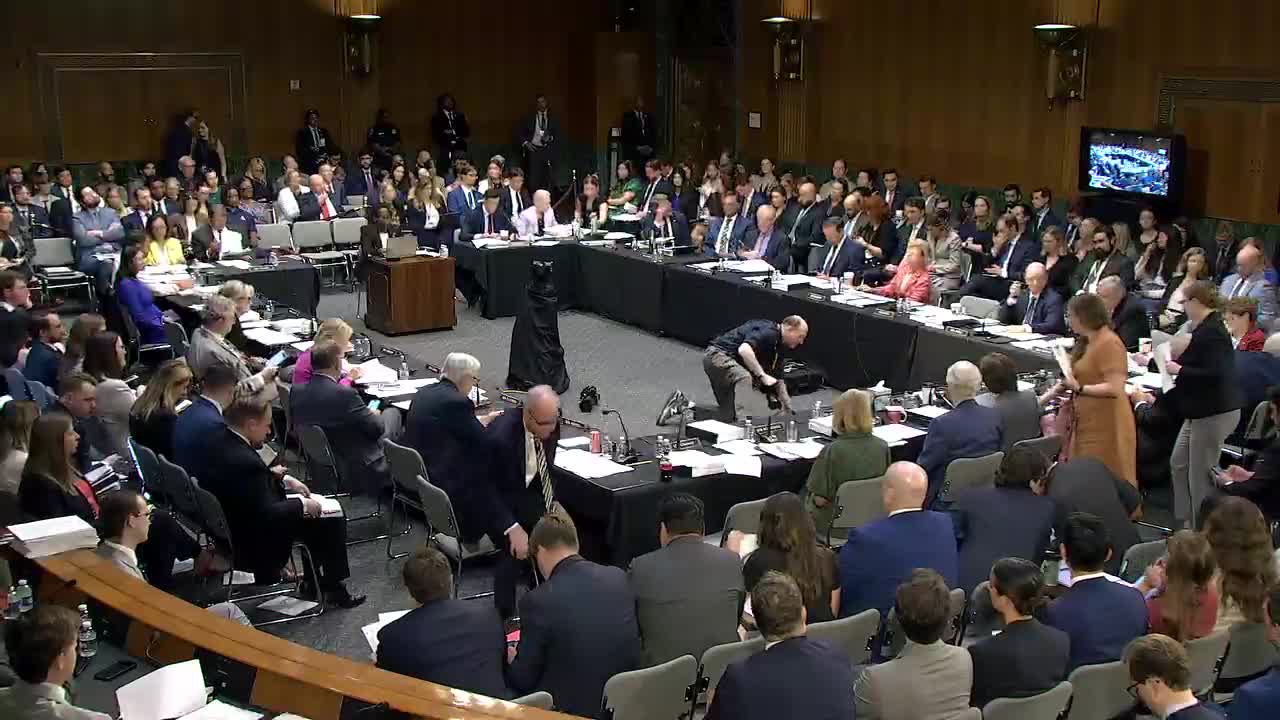Senate Committee Directs Defense Department to Review 6 PPD Chemical Impact on West Coast Fisheries
July 31, 2025 | Appropriations: Senate Committee, Standing Committees - House & Senate, Congressional Hearings Compilation
This article was created by AI summarizing key points discussed. AI makes mistakes, so for full details and context, please refer to the video of the full meeting. Please report any errors so we can fix them. Report an error »

In a recent meeting of the U.S. Senate Committee on Appropriations, significant discussions centered around environmental concerns and military healthcare, highlighting issues that resonate deeply with local communities.
One of the most pressing topics was the impact of the chemical 6 PPD on West Coast fisheries. Senator Jeff Merkley raised alarms about the chemical's role in the decline of juvenile coho salmon populations following rainstorms, as identified by a study in Washington state. He emphasized that this issue poses a serious threat not only to the fishing economy but also to the cultural heritage of tribal and commercial fishermen. The senator called for the Department of Defense (DOD) to provide clarity on their research regarding 6 PPD, urging them to share findings that could complement existing studies. This request was met with support from other senators, including Lisa Murkowski and Patty Murray, who echoed the need for a thorough review to protect marine life and the fishing industry.
The committee unanimously adopted an amendment directing the DOD to conduct this review, marking a proactive step towards addressing environmental concerns that affect local economies and communities reliant on fishing.
In addition to environmental issues, Senator Jerry Moran expressed gratitude for the inclusion of language in the appropriations bill that addresses healthcare services at military installations. He highlighted the state-of-the-art Irwin Army Hospital at Fort Riley, Kansas, which was built at a cost of $380 million. However, concerns were raised about a review by the defense health agency that could potentially reduce services at military hospitals, impacting the healthcare available to service members and their families.
These discussions reflect a broader commitment by the Senate to address both environmental and healthcare challenges that directly affect communities across the nation. As the committee moves forward, the outcomes of these discussions will be crucial in shaping policies that safeguard both the environment and the well-being of military families.
One of the most pressing topics was the impact of the chemical 6 PPD on West Coast fisheries. Senator Jeff Merkley raised alarms about the chemical's role in the decline of juvenile coho salmon populations following rainstorms, as identified by a study in Washington state. He emphasized that this issue poses a serious threat not only to the fishing economy but also to the cultural heritage of tribal and commercial fishermen. The senator called for the Department of Defense (DOD) to provide clarity on their research regarding 6 PPD, urging them to share findings that could complement existing studies. This request was met with support from other senators, including Lisa Murkowski and Patty Murray, who echoed the need for a thorough review to protect marine life and the fishing industry.
The committee unanimously adopted an amendment directing the DOD to conduct this review, marking a proactive step towards addressing environmental concerns that affect local economies and communities reliant on fishing.
In addition to environmental issues, Senator Jerry Moran expressed gratitude for the inclusion of language in the appropriations bill that addresses healthcare services at military installations. He highlighted the state-of-the-art Irwin Army Hospital at Fort Riley, Kansas, which was built at a cost of $380 million. However, concerns were raised about a review by the defense health agency that could potentially reduce services at military hospitals, impacting the healthcare available to service members and their families.
These discussions reflect a broader commitment by the Senate to address both environmental and healthcare challenges that directly affect communities across the nation. As the committee moves forward, the outcomes of these discussions will be crucial in shaping policies that safeguard both the environment and the well-being of military families.
View full meeting
This article is based on a recent meeting—watch the full video and explore the complete transcript for deeper insights into the discussion.
View full meeting